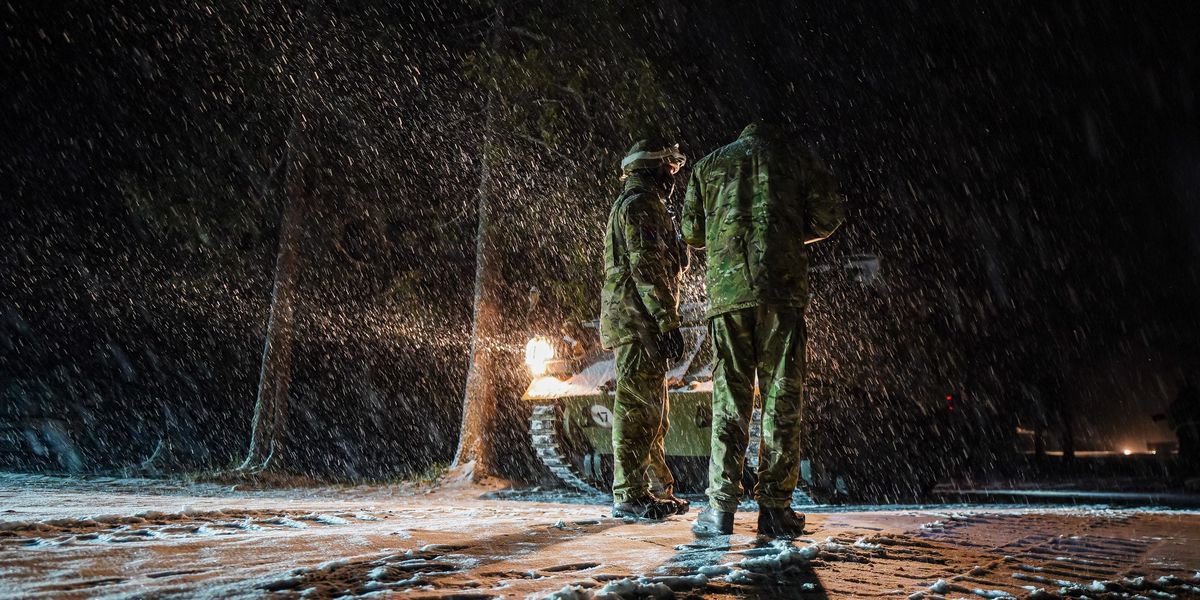The UK has prepared weapon supplies in a “war game” after Putin begins to ramp up World War III rhetoric.
The new strategy will require military suppliers to demonstrate the ways in which they would produce a large number of critical weapons at pace – including drones and missile rockets.
This move follows wider concern that the UK would not be able to supply enough equipment for the front lines at short notice amid fears over the state of the industry’s resilience and flexibility.
Ministers have expressed concern that there is excessive focus on expensive, advanced equipment that takes a significant amount of time and resources although still vulnerable to newer technology, The Times reports.
One official emphasised that the developments in the Ukraine war was a “machine gun moment for the army and a jet-engine moment for the air force” (Stock)
PA
Additionally, Government figures have said that the conflict in Ukraine has depicted that “exquisite” military equipment such as state-of-the-art tanks, personnel carriers and warships are susceptible to drone attacks, which only cost around a few hundred pounds to produce.
One official emphasised that the developments in the Ukraine war was a “machine gun moment for the army and a jet-engine moment for the air force”.
Sources in the Ministry of Defence (MoD) told The Times that Ukraine’s drone technology was advancing every month or so, as they claimed that defence manufacturers were required to produce “high-impact but less time-incentive bits of kits” swiftly.
They said: “That is something we need to test to ensure we have the capability to do.
LATEST DEVELOPMENTS:
In a protracted war you are only as strong as the industry that stands behind you.”
Defence secretary John Healey will outline the Government’s defence industrial strategy at the same time, urging stakeholders and industry bodies to provide insight in the sector, seeking greater integration and innovation across the sector.
He will aim to encourage job growth across “every nation and region of the UK”, arguing that a strong defence will set “the foundation for a decade of national renewal”.
Meanwhile, the Labour Chancellor has said that she would increase defence expenditure to 2.5 per cent of GDP next spring, amid concerns that further spending should be spent on British growth.
The defence secretary added that Britain’s defence sector must be “better and more integrated” and was able to “keep our armed forces equipped, innovating at a wartime pace, and ahead of our adversaries”.
The defence secretary added that Britain’s defence sector must be “better and more integrated” and was able to “keep our armed forces equipped, innovating at a wartime pace, and ahead of our adversaries” (Stock)
PA
“We are sending a signal to the market and to our adversaries,” he continued.
“With a strong UK defence sector we will make Britain secure at home and strong abroad.”
The adoption of this strategy has followed Ukraine launching UK Storm Shadow missiles at Russia two weeks ago.
Following the attack, Vladimir Putin approved changes to a doctrine, widening the conditions under which the Kremlin was permitted to use its arsenal to launch a nuclear strike.
Now, an attack launched by a non-nuclear state, if supported by a nuclear power, would be considered a joint assault on Russia.

